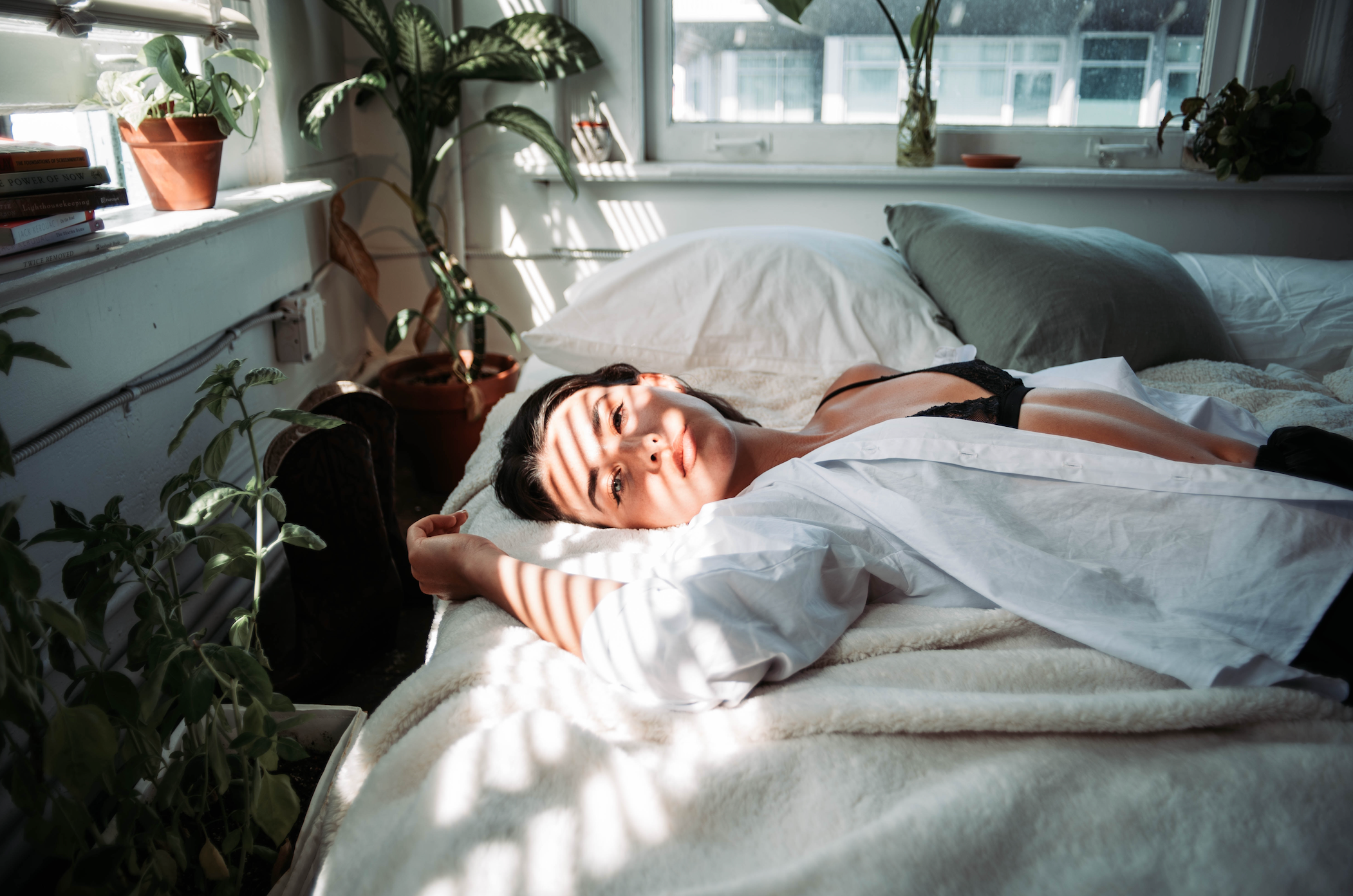Sleep is a vital element of good physical and mental health. However, during your menstrual cycle, it can be challenging to get a good night's rest. Hormonal changes, cramps, and other period-related discomforts can make it difficult to fall asleep and stay asleep.
Fortunately, there are several period sleep tips you can follow to improve your sleep quality during menstruation. In this blog post, we'll be sharing our fifteen tips to help you get a better sleep during your period.

1. Create a sleep-conducive environment
Your sleep environment can have a significant impact on the quality of your sleep. Make sure your bedroom is cool, quiet, and dark to promote a restful night's sleep. Use comfortable bedding and invest in a supportive mattress and pillow to help you sleep comfortably.
2. Practise good sleep hygiene
Good sleep hygiene habits can help you sleep better on your period. Avoid caffeine, alcohol, and nicotine before bed, as they can interfere with your sleep quality. Stick to a consistent sleep schedule and avoid using electronic devices before bed to reduce the risk of sleep disturbances.
3. Incorporate relaxation techniques
Incorporating relaxation techniques like deep breathing, meditation, or yoga can help you manage period-related stress and anxiety. These techniques can promote feelings of relaxation and help you fall asleep more easily.
4. Exercise regularly
Regular exercise can help you sleep better during your menstrual cycle. Exercise promotes the release of endorphins, which can help you manage period-related pain and discomfort. Just be sure to avoid strenuous exercise close to bedtime, as it can make it harder to fall asleep.

5. Stay hydrated
Drinking plenty of water during the day can help you stay hydrated and reduce the risk of period-related sleep disturbances. Dehydration can cause headaches and other discomforts that can interfere with your sleep quality.
6. Try a warm bath or shower
Taking a warm bath or shower before bed can help you relax and prepare for sleep. The warm water can help relieve period-related cramps and discomforts, making it easier to fall asleep.
7. Use organic period products during sleep
Using organic period products whilst you sleep like organic pads and tampons can help reduce period-related discomforts and promote better sleep quality. These products are designed to provide reliable protection while also being gentle on your body.
8. Practise good nutrition
Eating a healthy, balanced diet can help you sleep better during your menstrual cycle. Foods rich in magnesium, vitamin B6, and calcium can help alleviate period-related symptoms like cramps, bloating, and mood swings.
9. Use comfortable sleepwear
Wearing comfortable sleepwear and period underwear can help you sleep more comfortably during your period. Opt for loose-fitting, breathable clothing made from natural fibres like cotton or bamboo.
10. Seek professional help if needed
If you're experiencing severe period-related sleep disturbances or other symptoms, seek professional help. Your GP can offer advice and suggest treatment options to help you manage your symptoms.
11. Try aromatherapy
Aromatherapy can help reduce period-related stress and anxiety as well as promote relaxation. Essential oils like lavender, chamomile, and ylang-ylang are known for their calming effects and can help you fall asleep faster and sleep more soundly.
12. Use a heating pad
Applying heat to your lower abdomen or lower back can help relieve period-related cramps and discomfort, making it easier to fall asleep. A heating pad or a hot water bottle can provide soothing warmth and help you relax.
13. Sleep in a comfortable position
Sleeping in a comfortable position can help reduce period-related discomforts and promote better sleep quality. Try sleeping on your side with a pillow between your knees to help align your spine and reduce pressure on your lower back and pelvis.
14. Practise stress-management techniques
Period-related stress and anxiety can make it challenging to fall asleep. Practising stress-management techniques like journaling, talking to a friend, or seeking professional counselling can help you manage these symptoms and promote better sleep quality.
15. Take a nap
If you're feeling tired during the day, taking a nap can help you catch up on missed sleep and improve your mood and concentration. However, avoid napping for too long or too close to bedtime, as it can interfere with your nighttime sleep.
DAME's takeaway
By following these period sleep tips, you can wake up feeling refreshed and energised. Remember, getting enough sleep during your period is essential for your physical and mental health, so prioritise it as part of your self-care routine.
Don't forget to incorporate DAME's organic period products and menstrual hygiene practices in your sleep routine to help you manage your period-related discomforts. Sleep tight!




